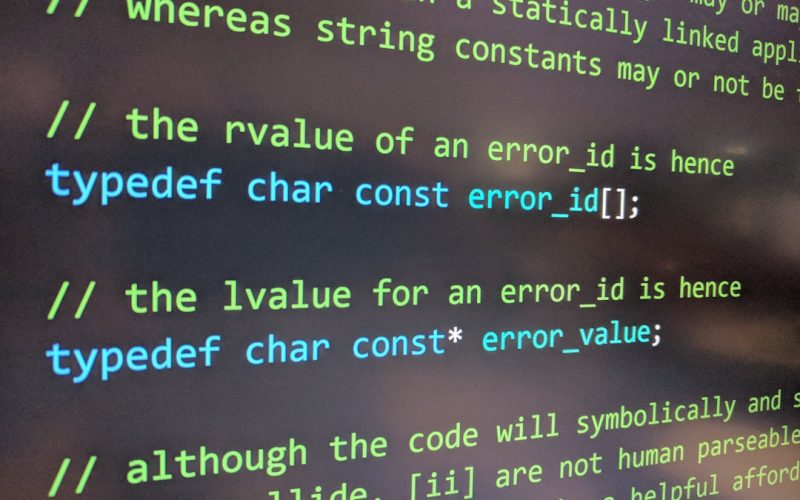Are you pondering taking up WordPress? Well, if so; know that you’re not the only one! As one of the most frequently used blogging platforms and website builder on the planet – it’s no surprise to hear lots of people deciding to learn WP. Now here’s a conundrum… how hard is it really though?! In this blog post we’ll be demystifying all things related to learning WordPress and assess what kind of tutorials are available for beginners. What difficulties can you expect when mastering this platform afterall? So if your mission is getting started with building websites using WordPress then keep reading mate!
Getting your head around WordPress can be a bit of an intimidating challenge for those who don’t know how it works. Knowing the basics and getting to grips with what you need to do is vital if you want to reap all the rewards this powerful platform has got up its sleeve. It’s essential that aspiring webmasters and bloggers get their heads round the fundamentals, so they’re able set something truly special in motion.
So, where best to start? There are several steps which must be taken before any content creation or theme tweaking can begin. To really hit ground running, educate yourself on various aspects of WordPress: plugins; themes; widgets; menus; post types & taxonomies – pretty much everything! Once you’re clued-up about ’em all – only then will have comprehensive control over WP creativity…
Right, so you need to manage your website’s content and it pays to understand each component? Trust me – get a grip of these basics soonest! Then comes the important stuff; understanding what each element does and how they work together will help make changes or create new content on your site as swiftly as can be. It should then become second nature for ya… like riding a bike with stabilisers (only much more useful)!
Getting to grips with widgets means you can add snazzy custom features such as forms or contact info without any need for coding – far simpler than starting from scratch! And knowing about post types allows users – even those who haven’t got a technical bone in their bodies – create impressively unique content. This makes adding content an absolute cinch compared to before.
Another essential point for new WordPressers is getting savvy on SEO (Search Engine Optimisation).
SEO is all about getting your web pages higher up in the search engine results pages (SERPs). That’s done by making sure that the words you use to describe a topic or industry are ‘keywords’ – and used on those webpages. This means more people can find what they’re looking for without relying solely on paid campaigns. It’s important to understand SEO basics like meta tags so you can make effective tweaks which will catapult traffic numbers over time!
Ah, but then there’s much more: security measures such as regular updates & backing-up; customisation of themes using HTML & CSS code with JavaScript libraries like jQuery & ReactJS; migrating from host provider A to B; setting up an ecommerce store using WooCommerce or Shopify… Yes these take some mastering, but when sorted out it gives users complete control over their websites meaning maximum flexibility whenever changes need be made.
Table of Contents
ToggleDecoding the Complexity: Is WordPress Really Difficult?
Mastering WordPress can be a daunting task for those who lack coding chops or technical expertise. It’s often viewed as an intricate system, full of complexities that need cracking to make use of it. But is it really so hard?
The truth is, even if you haven’t got any experience in programming, using and comprehending WordPress isn’t complicated at all! This open source content management platform was designed with the user in mind; most features are intuitive and straightforward – John Cleese would love the simplicity!
There’s a plethora of resources online to steer you through the process of establishing your website or blog using WordPress. The technical skills required, such as knowing how domain names work and configuring hosting accounts are much easier than having to grapple with HTML coding or CSS which might be necessary when utilising other web building platforms – not for the feint hearted!
The myriad of plug-ins offered by WordPress will give you a practically infinite range of options to customise your site, all whilst keeping things straightforward and user friendly. What’s more – for those who’ve never laid eyes on web development or programming before there are loads of online tutorials that can get them up and running in no time! If only everything else was as effortless… I guess we’d be outta a job then, right?
WordPress has certainly come a long way since its early days; it used to be favoured mainly by bloggers and hobbyists who wanted an easy route onto the internet. Now, millions of people around the globe take advantage of all that WordPress offers – from sole traders right through to major companies! Not only is it great for sharing content but also boasts some superb built-in features such as WooCommerce integration which make setting up online stores dead simple, even if you don’t have any web design or development experience. This means entrepreneurs on tight budgets can get their own online store without having to hire expensive developers – result!
Essential Skills Needed to Learn WordPress
Getting to grips with WordPress ain’t as tricky as it looks, though understanding how best to use it can be a bit of a challenge. There’s loads of features and options on offer which take some getting used to – just like the idea that you need certain skills before you dive in headfirst!
Knowing your HTML, CSS and PHP comes top of the list if you want get up-to-speed with WordPress quickly. Being able work around these language elements will really help when trying create websites or blogs using this platform – makes life way easier!
What’s also essential when it comes to mastering WordPress is an appreciation of SEO (search engine optimization) tactics and practices, so you can get your website or blog out there into the big wide world. Now if that sounds all a bit too much like hard work – don’t worry! It doesn’t have to be complicated; knowing what goes on behind-the-scenes with web hosting and which package should be purchased for building your site makes sure everything runs as smoothly as John Cleese playing a Ministry of Silly Walks sketch in his back garden at 2am (not recommended). So getting clued up about this kind of stuff pays off in spades – trust us!
Getting to grips with keywords and how they interact with other SEO techniques such as link building is key in getting your material out there quickly. Knowing about plugins when making a WordPress site can also be really useful – these give you access to features like contact forms, picture sliders or image galleries that make the webpages look great. It’s essential though that if you’re installing them, do it properly; otherwise page loading times could suffer which isn’t ideal! Get yourself familiarised before attempting any major modifications or adding new ones either – trust us this will save time in the long run! And last but not least: having some coding know-how helps significantly too when creating something on Visual Composer for instance (which makes life simpler even without any coding experience). But those of you who have at least an elementary level knowledge should find things far easier than expected.
Effective Ways to Simplify Your WordPress Learning Journey
Learning WordPress can be a bit daunting to begin with, especially if you are new on the web dev scene. The learning curve is steep and there’s an avalanche of info out there so it’s easy for your head to get scrambled like eggs! Fortunately though, by taking the right approach and utilizing some helpful resources you can make that journey into cyberspace smoother sailing than expected – almost John Cleese-esque (sorry!).
One way to do this is complete tutorials or even better take an online course as both will help give much needed insight when trying sort through all those confusing buttons and widgets. Don’t worry about coughing up cash either ‘cos these days finding free how-to videos on YouTube are plentiful; from installing themes n’plugins down fixing websites from scratch they’ll provide plenty of tips whilst helping demystify some otherwise tricky areas.
Online courses give you more far-reaching lessons on things like subject customisation or creating an eCommerce shop with WordPress. This way, you have access to instructions that will take you bit by bit through all the concepts without getting discombobulated or panicking in the process.
Additionally, there’s another super great technique for lightening your education voyage and that is reading weblogs about WordPress development and design. Blogs scribed by pro web developers often come packed with helpful knowledge into regular problems when dealing with WordPress as well as advice about how to manage them straightforwardly -worth its weight in gold!
What’s more, these blogs are often jam-packed full of useful resources like regularly updated collections of plugins. This is handy for newbies who don’t want to spend ages researching each component they need when building a project; it saves loads time!
John Cleese style: ‘It can be easy to forget about books in the quest for simplifying your WordPress journey – but there are stacks and stacks out there written specifically targeting different aspects such as developing themes or constructing websites which offer an amazing blend between study and practice.’ And with that said, mastering all its features efficiently over short periods has never been easier!
Role of Tutorials in Mastering WordPress Basics
Mastering WordPress can be a bit of a struggle for lots of folks, especially those who don’t know the first thing about website-building. Knowing the fundamentals of WordPress is imperative if you wanna make full use its characteristics and design an amazing site. Tutorials are like your own personal handbook to this widely used content management system (CMS). Not only do they give people guidance on how to get their heads around all them tools in WP, but also provide tonnes of invaluable insights into web design tactics and methods that work best!
Tutorials are absolutely boon for those who’ve never dabbled with WordPress before, as they offer a clear and concise guide on how to craft the foundations of your website or blog. You’ll discover all about installing plugins, themes and widgets; authoring posts and pages; dealing with users; specifying featured images; adjusting site settings like it was going out of fashion – no coding knowledge necessary! Plus tutorials also throw you in at deep end by introducing more advanced features such as custom post types or shortcodes (of which I’m sure you have plenty). And don’t worry if that still sounds too cryptic – these basics will help set up any SEO elements including meta descriptions & alt tags plus incorporate social media buttons into your site without breaking a sweat.
For those who already know the WordPress basics and are after a bit more of an in-depth education on matters such as customising plugins or tweaking themes, there’s no shortage of tutorials that go into much greater detail. Tutorials will also teach you to code using languages like HTML/CSS/JavaScript so you can take your website beyond what is possible with just plugins or themes – plus they’re great for getting stuck into if coding isn’t something you’ve done before
Essentially, tutorials provide invaluable support when it comes to understanding how things work inside WordPress – leading users down a path where everything from design features through to actual programming elements become part and parcel of their everyday life; John Cleese style! A sound tutorial plan provides beginners with all the building blocks needed for mastering basic concepts while equipping them fully ready for anything advanced web designing throws up later on down the line.
Common Challenges Faced while Learning WordPress
Learning WordPress can be rewarding, but it can also present a few teething problems for those just getting their heads around the platform. Although there’s tonnes of free stuff available on the web to help beginners get to grips with all things WP, really mastering it takes time and effort.
And then there’s this whole theme business – one of the biggest booby traps that newbies trying out WordPress often stumble into. It is essential though to understand how themes work as they are integral in creating any kinda website through WP; allowing you make sure your site looks exactly like you want it without having programming skills up yer sleeve!
Themes come in many a shape and size, such as free or premium options – so it’s best to take some time out for research before you jump into any decisions. Now here comes the tricky part when learning WordPress: understanding how plugins work! Plugins are an absolute must-have if you want to customise your website and add its features but getting them installed correctly can be quite daunting if you’re just starting off on this journey. A word of advice from me would be that beginners should start small by using easy plugins like contact forms or page builders rather than shooting straight for more complex ones, which include ecommerce stores and membership sites – trust me I’ve learnt my lesson there!
Getting clued up on coding languages that are used in web development is another challenge for those wanting to truly get to grips with WordPress. Having some basic knowledge of HTML and CSS will be a real bonus when constructing pages through the platform, but you may need more convoluted languages like JavaScript or PHP if you want your projects done right from a technical point of view.
Other headaches include dealing with hosting services; registering domain names; configuring databases; fixing errors and gremlins (rather than waiting until they become major problems!); honing websites according to SEO best practices; making sure all security updates are current…the list goes on! All these tasks require dedication, patience and practice if you’re after smooth sailing when running your WordPress site – so it pays off being proactive rather than reactive before getting into them too deeply.
Insider Tips for a Smooth WordPress Learning Experience
Gaining expertise in WordPress can be a real challenge for novices, but it doesn’t have to be like that. Luckily there are plenty of insider tips out there which could help you make the most of your learning experience and ensure you’re on track. So here’s five top tricks to get an effortless ride with WordPress:
Firstly, establish realistic expectations! Learning all about WP ain’t easy peasy so take it bit by bite and don’t rush through stuff or try taking on too much at once.
It’s absolutely key to take your time if you want to get the most out of your experience, and it’ll stop any tiny slips turning into enormous blunders down the line. What’s more, set aside a bit of dedicated learning time every week for WordPress – this way you can stay up-to-date with all relevant new material rather than being totally overwhelmed by an avalanche of information arriving at once!
What’s thirdly then? Well, rather than trying to commit every single detail related to individual features or plugins to memory, try and get a grasp of how the entire platform works together. This knowledge will come in handy if you ever need to troubleshoot an issue or make modifications down the line.
Next up is fourthly – when making changes on your site always have a backup plan! That way, should something go wrong during an update or edit process you can easily revert back with no progress lost; this may require additional software depending on what type of hosting setup you’re using so it’s worth checking that out beforehand just in case. And last but not least: fifthly – don’t be afraid reach out for help from experienced users who already know their stuff! Tutorials like these are great because they provide tips and tricks as well as solutions for common problems which often crop up during development workflows.
How Time-Consuming is it to Learn WordPress?
Learning WordPress can be a time-consuming process, but bear in mind that how long it takes depends on several factors. Not least of all, your existing knowledge about web design and development plays a huge role; if you’re just getting started then you’ll likely end up spending much more time than somebody who already has some experience in this area. Of course, if the aim is to create an actual website using WordPress as its platform – well good luck! That requires learning not only the basics of WP itself but also having at least a reasonable understanding of how it functions too. Time for another cuppa I think…
Well, how quickly you can learn WordPress really depends on what kind of website you want to create. If it’s a straightforward blog or an informative one with no extra bells and whistles then most folk should be able to get the hang of it relatively fast. But if your intention is something more intricate like starting an online shop or membership site then there’ll be far more involved in getting everything up-and-running so that things run smoothly. Now, I’m sure Mr Cleese would have had his own unique take on this subject…
No two people’s learning speed is the same when it comes to WordPress, and how quickly you pick it up depends on both your research efforts – yep, we’re talking scouring every corner of Google for helpful tutorials here! – as well as your commitment level. Some folks seem to sail through new software while others may need a bit more practise before they really get their head around things; like any skill, practice makes perfect!
What’s more, if you have had any kind of experience before with programming languages like HTML or CSS – well then you might be laughing all the way from start to finish when it comes to web development. It makes sense afterall that once something is familiar, we find ourselves having an easier time picking up certain aspects related too it. All these coding techniques used by developers today can seem daunting at first but never fear: think of them as a logical language and communication between computers!
For anyone who wants good results quickly with no prior knowledge, they should consider using one of the many tutorials available online which provide step-by-step instructions for creating websites using WordPress. No prerequisites are required beforehand; however, these tutorials usually only cover basic tasks like setting up hosting accounts and installing themes so they don’t go too far into customizing sites beyond what comes out-of-the box from WP itself (which can limit your creative freedom). In summary, learning WordPress can take anything from being speedy and simple if you’re already comfortable with web design principles to very difficult if you’re totally new to it – but everyone should expect some degree of trial & error before getting a handle on it entirely! After all, when John Cleese said that “experience is something you get five minutes after needing,” he could’ve easily been talking about figuring out how best use WordPress.
Assessing Progress: Gauging your Command over WordPress
If you’ve been getting to grips with WordPress for a while, you’re probably pondering how much headway your making and if there’s any means of measuring it. While tracking the progress of your learning can be tricky, there are some things that’ll assist in figuring out whether or not you have a decent handle on the basics.
Unquestionably one of the best ways to gauge where you’re at is being able to diagnose and resolve difficulties cropping up amongst WordPress websites – key skills for anyone wanting to master this platform!
Assessing your grasp of WordPress can be tricky, but there are a few ways to test yourself. Troubleshooting errors and bugs as well as finding ways to improve site performance gives an indication of how quickly you respond and sort out the issue – so if it’s done in a jiffy with minimal effort then that could suggest your understanding has shot up since starting work on WP. It might also help looking back at projects; whether they were simple websites or complex ones – completing them without needing too much assistance suggests you’ve become more adept over time when it comes working on the platform. Finally, being able to chat about issues related to WP should give an idea on just how far along you’ve come mastering its features and capabilities. In other words – making conversation whilst keeping afloat is another way for one gauge their progress!
To wrap up, mastering WordPress isn’t a tall order; it just takes some hard work and dedication. The good news is that there’s an abundance of tutorials to help get you started with the basics – making your journey quite straightforward! That being said, if you want to take things further and really hone in on your skills then more effort will be needed from you – though this can come with its own fun challenges along the way. Ultimately learning how to use WordPress offers such awesome opportunities not only for yourself but also when building presence online so make sure that however much time or energy invested into it is rewarded back tenfold.
Fancy a hand with your project? Give me a buzz and we can have an chat about how I can lend you a helping hand. I’ve got plenty of experience under my belt, from tiny startups right up to huge corporations – plus web development, digital marketing, graphic design and more! You don’t need to worry either; when it comes down to the nitty-gritty stuff like finishing on time without breaking the bank or making sure everything is top notch quality – that’s what I’m here for! So why hesitate? Get in touch now and let’s get things rolling.




